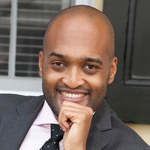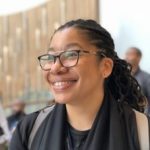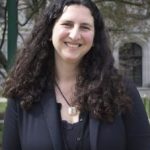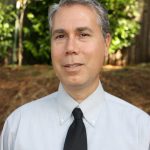Zoom: https://illinois.zoom.us/j/98567064326?pwd=Umxvdks0dFNQVkE2d005YWJSNHN1dz09
Password: 2ndBook20
Friday and Saturday, September 25 and 26, 2020
After transforming their dissertations into a first book, many professors turn to a second book project to extend their interest in their field of research and even to clarify their career aims. The Second Book Project is a symposium bringing together the ongoing research projects of several distinguished scholars of American literature. Our participants will be discussing their books-in-progress, especially their premises and critical purposes. Each of these scholars has written a very successful first book about American literary history, and each is engaged in a new rich, venturesome study. They will further describe the impact they hope for their books to make, the scholarly need or opportunity they see themselves addressing, and how they expect their books to contribute to the various ongoing debates of which they will be a part. By circulating their ideas in this way, the symposiasts are also inviting further discussion of their projects and are especially interested in the audience’s engagement with their arguments. Each speaker will talk for about thirty minutes, after which the other panelists and audience members will have a chance to exchange ideas and raise questions.
Friday (9/25) Schedule:
Greta LaFleur (Yale University), at 10:00 am CST: “Against a Hagiography of Sexuality”
(Yale University), at 10:00 am CST: “Against a Hagiography of Sexuality”
“Rape is about power,” Susan Brownmiller argued in 1975, “not sex.” Oft repeated, this idea abjects violence from the realm of sexuality, insisting on an understanding of modern sex that is distinct from power, and a vision of rape distinct from sex. For scholars of early sexuality, this understanding of sex as definitively nonviolent has cast a long shadow over the history of sexual relations, functionally cordoning off “rape” from sex. A Queer History of Sexual Violence takes this twentieth-century political distinction between sexual violence and sex “itself” as a point of departure to consider how efforts to address the problem of sexual violence between the eighteenth-century and the twentieth came to bear on modern understandings of sex and sexuality—what sex is, what sex is not, and how that distinction came to be. An interdisciplinary legal history project informed by feminist and queer theoretical frameworks, A Queer History of Sexual Violence asks how our understanding of the structuring questions and sources for the history of sexuality in America might change if we center the experience of sexual violence or coercion-arguably the constitutive experiences of sex before the advent of 1970s marital rape laws—instead of modern paradigms of pleasure, consent, and voluntary participation.
 Douglas Jones (Rutgers University), at 11:00 am CST: “Black Constitutions: Democratic Theory and Early African American Literature”
Douglas Jones (Rutgers University), at 11:00 am CST: “Black Constitutions: Democratic Theory and Early African American Literature”
This talk argues that African American writers before Reconstruction crafted narratives of persons coming into democratic subjectivity that are missing from, or lacking parallels in, other Anglo-American literary traditions. Specifically, their narratives of religious ecstasy, domestic violence, natural ravishment, the assumption of public respectability, and social autonomy reveal how iterative bodily events within particular settings (habitus) dispose persons toward democratic thought and action. This talk also homes in on why the rudiments of democracy were these writers’ primary interests in political philosophy, while those of citizenship, governance, or liberalism were often missing or of little account.
 Alisha Gaines (Florida State University), at 12:30 pm CST: “90 Minutes a Slave”
Alisha Gaines (Florida State University), at 12:30 pm CST: “90 Minutes a Slave”
This paper details my experience as a fake fugitive slave at Conner Prairie Living History Museum in Central Indiana. Their “Follow the North Star” program creates their version of the Underground Railroad in 1836 and offers its participants “empathy to the extreme.” This paper seeks to answer the following questions: What psychic and cultural work is done when slavery is staged as a “performance” with volunteer “actors?” How are the Black body and the slave body taught, performed, and collapsed into each other? What geographical histories are privileged when embodying the imagined space of the fugitive? And, ultimately, can “slave play” ever be emancipatory?
Saturday (9/26) Schedule:
 Rebekah Sheldon (Indiana University, Bloomington), at 9:30 am CST: “Critical Occultism: Affect, Magic, and the New Materialisms”
Rebekah Sheldon (Indiana University, Bloomington), at 9:30 am CST: “Critical Occultism: Affect, Magic, and the New Materialisms”
In this presentation, I will introduce the key concerns of my second book, Critical Occultism: Affect, Magic, and the New Materialisms. Contemporary scholarship in the new materialisms has grounded its difference from prior theoretical movements in its rejection of mediation, turning to affect as opposed to epistemology, matter rather than meaning, things over their representations. In Critical Occultism, I fold this binarization back on itself by theorizing the affective and material life of meaning, its animacy and sometimes wayward agency—an occluded potential, I contend, that appears throughout the new materialisms in the figure of the magician.
David J. Vázquez (American University), at 10:30 am CST: “Decolonial Environmentalisms: Race, Genre, and Latinx Culture”
(American University), at 10:30 am CST: “Decolonial Environmentalisms: Race, Genre, and Latinx Culture”
In this talk, I outline the stakes of reading “decolonial environmental” literary and cultural representations in Latina/o/x literature and culture. I argue that select Latinx literature, visual art, and film intertwines anti-racist, anti-capitalist, and decolonial ideas with contestations of environmental harm. My claim is that this archive of environmental knowledge is underappreciated in both the environmental humanities and Latinx Studies. Although I do not claim that these texts present us with “the answer” to such vexing issues as climate change or sea-level rise, I do point to this archive as a novel source of environmental thinking that complicates how we think about equitable remedies to multiple forms of injustice.
